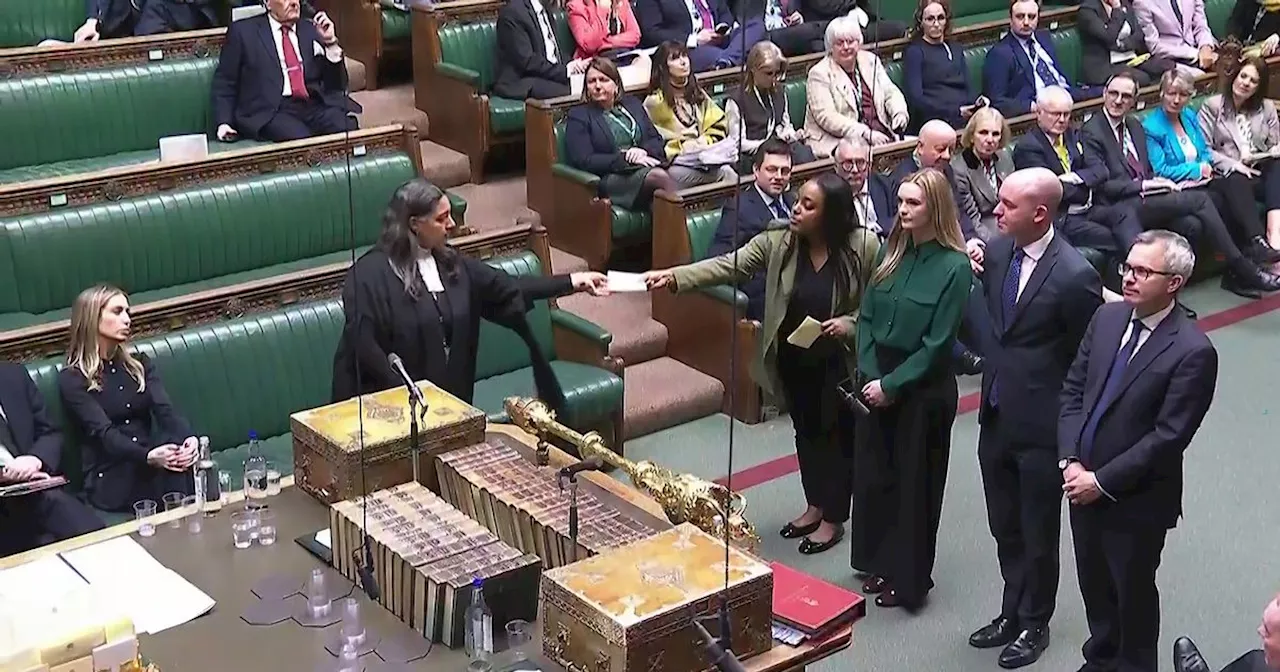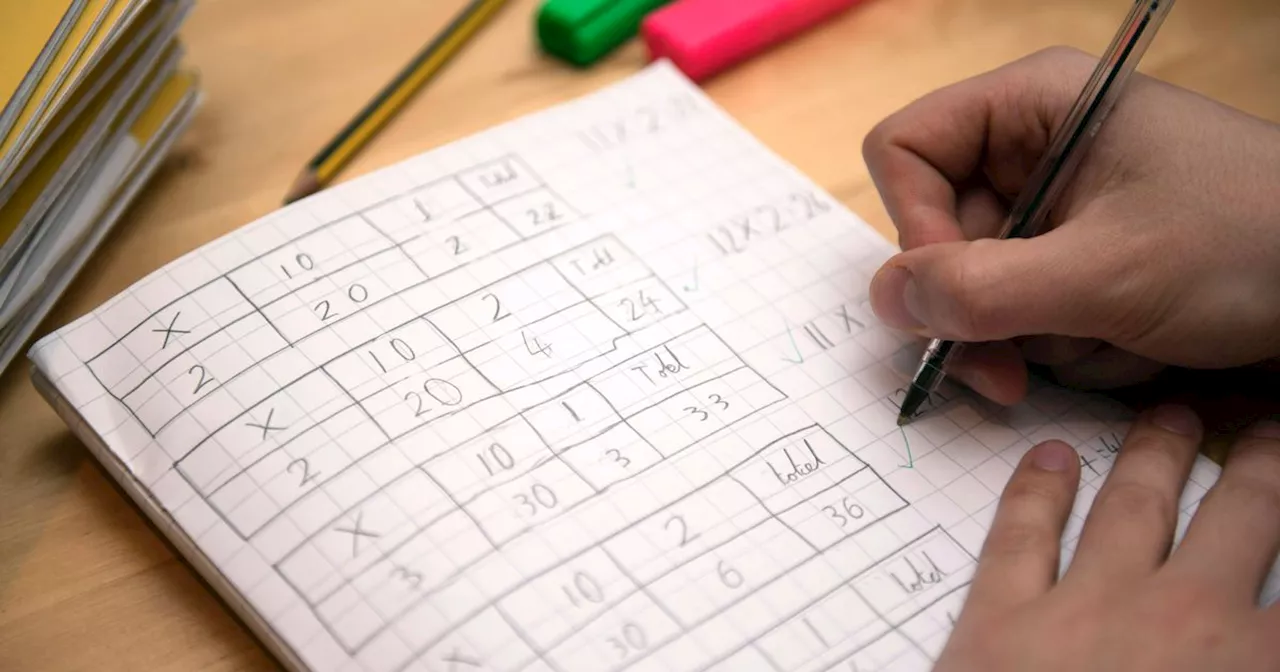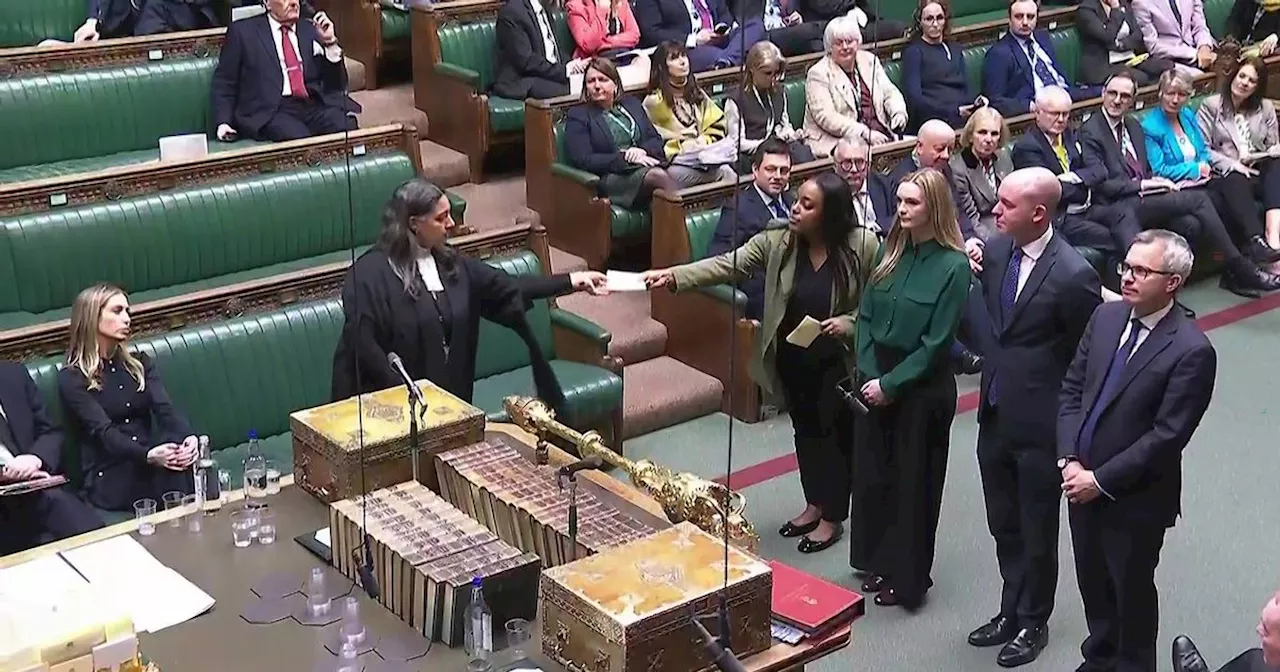The Children's Wellbeing and Schools Bill cleared its initial Commons hurdle after MPs rejected a Conservative amendment seeking to block it and call for a national inquiry into grooming gangs. The Bill will now undergo further scrutiny at a later date.
The Children's Wellbeing and Schools Bill passed its first stage in Parliament on Wednesday (January 8) after MPs gave it a second reading. A Conservative amendment seeking to block the Bill and call for a national inquiry into grooming gangs was defeated by a majority of 253 votes. The Bill then received its second reading without a further vote.
The Government's draft child protection legislation cleared its initial Commons hurdle following a heated Prime Minister's Questions, where Tory leader Kemi Badenoch suggested that failing to support the investigation would fuel concerns about a 'cover-up'. The Conservatives' motion to the Children's Wellbeing and Schools Bill demanded a new national inquiry into gangs, which, if approved, would have halted the legislation's progress. However, MPs voted to reject the motion by 364 votes to 111, a majority of 253. The division list showed that supporters of the amendment included 101 Conservatives, five Reform UK, two DUP, the TUV's Jim Allister, UUP MP Robin Swann, and Independent Alex Easton, with no Labour MPs supporting it. When asked if the Bill should receive a second reading, shouts of 'no' could be heard, and a division was initially called, but it was later cancelled. The Bill will face further scrutiny at a later date. The Children's Wellbeing and Schools Bill aims to ensure all state schools – academies and those run by councils – adhere to the same pay and conditions framework. Academies, which operate independently from local authorities, currently have the freedom to set their own pay and conditions for staff, with some academies exceeding national pay scales for teachers. The new Bill would ensure all teachers are part of the same core pay and conditions framework, regardless of whether they work in a local authority-run school or an academy. The Bill also includes other measures, such as requiring all state schools, including academies, to teach the national curriculum. It will also allow councils to open new schools that are not academies and put an end to the forced academisation of schools run by local authorities that Ofsted identifies as a concern. The Government also plans to strengthen child protection with a new register of all home-schooled children in England
EDUCATION CHILD PROTECTION BILL PARLIAMENT SCHOOLS
United Kingdom Latest News, United Kingdom Headlines
Similar News:You can also read news stories similar to this one that we have collected from other news sources.
 Plan to register children not in school takes shapeThe Children's Wellbeing and Schools Bill is expected to come into force in 2025.
Plan to register children not in school takes shapeThe Children's Wellbeing and Schools Bill is expected to come into force in 2025.
Read more »
 Children's Wellbeing Bill Clears First Hurdle in ParliamentThe Children's Wellbeing and Schools Bill passed its second reading in the House of Commons, despite a Conservative amendment calling for a national inquiry into grooming gangs being rejected. The Bill aims to standardize pay and conditions for teachers in all state schools, including academies, and ensure all schools teach the national curriculum.
Children's Wellbeing Bill Clears First Hurdle in ParliamentThe Children's Wellbeing and Schools Bill passed its second reading in the House of Commons, despite a Conservative amendment calling for a national inquiry into grooming gangs being rejected. The Bill aims to standardize pay and conditions for teachers in all state schools, including academies, and ensure all schools teach the national curriculum.
Read more »
 Children's Wellbeing Bill Passes First Hurdle Despite Conservative OppositionThe Children's Wellbeing and Schools Bill, aimed at standardizing pay and conditions for all state school staff, passed its first stage in Parliament despite a Conservative amendment seeking to block it and call for a national inquiry into grooming gangs.
Children's Wellbeing Bill Passes First Hurdle Despite Conservative OppositionThe Children's Wellbeing and Schools Bill, aimed at standardizing pay and conditions for all state school staff, passed its first stage in Parliament despite a Conservative amendment seeking to block it and call for a national inquiry into grooming gangs.
Read more »
 Compulsory registers for home educated children to be introduced in EnglandThe Children's Wellbeing and Schools Bill outlines new measures to protect kids, including Children Not in School registers
Compulsory registers for home educated children to be introduced in EnglandThe Children's Wellbeing and Schools Bill outlines new measures to protect kids, including Children Not in School registers
Read more »
 Smacking could be illegal by end of 2025 as children's tsar calls for law changeChildren's Wellbeing Bill, which would create register of children not in school, is expected to be published imminently
Smacking could be illegal by end of 2025 as children's tsar calls for law changeChildren's Wellbeing Bill, which would create register of children not in school, is expected to be published imminently
Read more »
 Best secondary schools in Yorkshire according to Fairer Schools IndexThe new measure ranks schools according to the difference teachers make in the classroom
Best secondary schools in Yorkshire according to Fairer Schools IndexThe new measure ranks schools according to the difference teachers make in the classroom
Read more »
